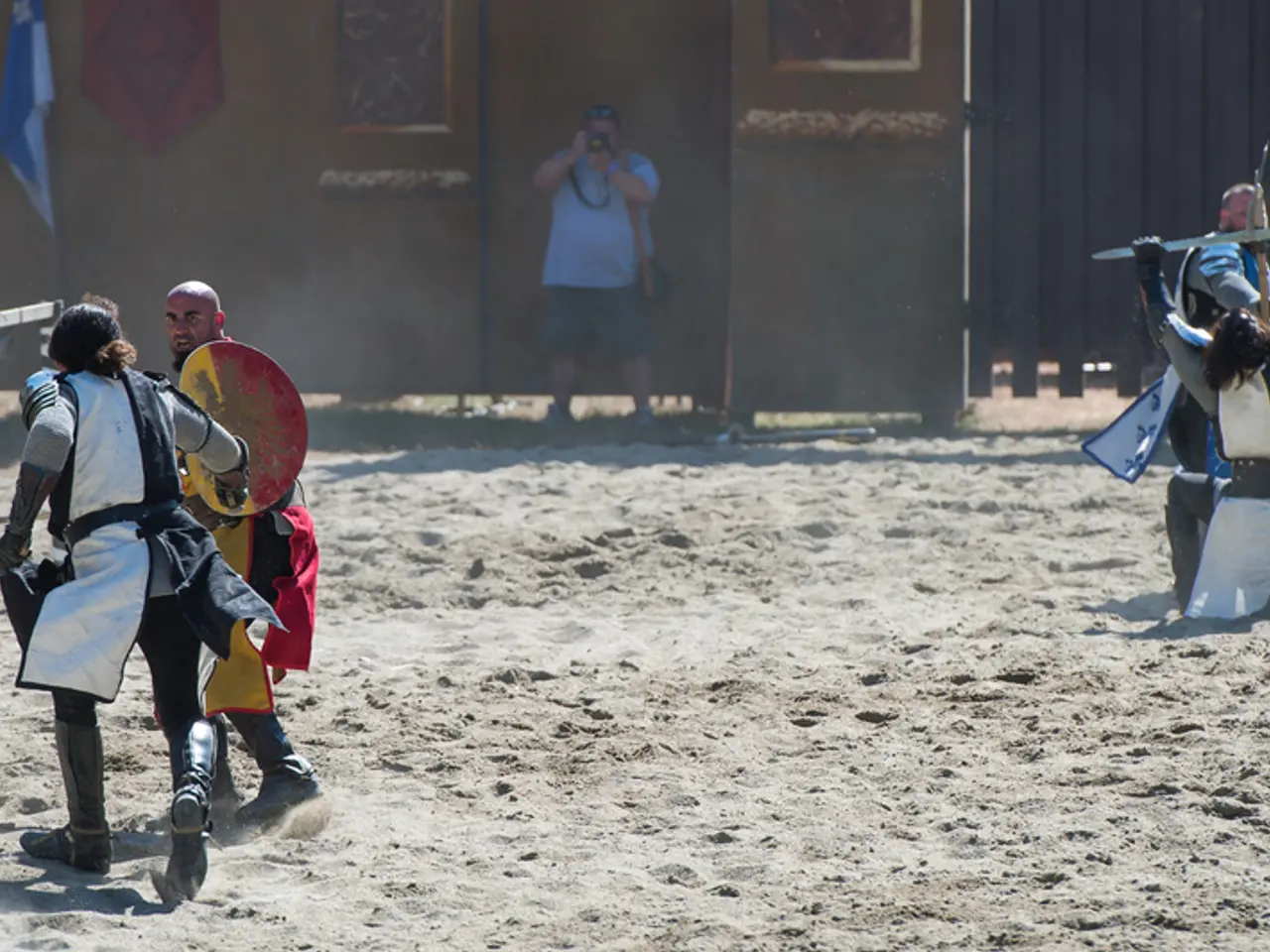Military commander advises Prime Minister to prioritize "national interests" in the contested border issue.
FreshTake:
The ongoing border squabble between Thailand and Cambodia remains tenuous, but there's a glimmer of de-escalation on the horizon. The latest flare-up erupted on May 28 in the Emerald Triangle, where a single tragic death of a Cambodian soldier occurred. Finger-pointing ensued, with Thailand accusing Cambodia of instigating the violence by using weapons during a misunderstanding, while Cambodia countered that the Thai army started firing first on a Cambodian base trench. In retaliation, both countries beefed up their military presence along the border, with Cambodia readying for potential retaliation. However, a sign of de-escalation emerged on June 8, as both sides agreed to lessen the aggression by fine-tuning their military positions to those agreed upon last year.
According to Lt Gen Boonsin Padklang, a Thai military official, the resumption of full border operations relies on decreasing military tensions through retreating troops to their prearranged positions and fostering an atmosphere of cooperation at disputed points. Although the exact wording of Lt Gen Boonsin's statement isn't entirely clear, the overall context points to border normalization hinging on mutual military de-escalation and joint management of disputed areas in a peaceful manner. This would necessitate both Thailand and Cambodia adhering strictly to their agreed-upon troop deployments and avoiding any further belligerent incidents.
From a broader viewpoint, Cambodia seeks a legal resolution to tackle persistent border disputes, including those surrounding several temples. Cambodian Prime Minister Hun Manet has expressed his desire to request fresh International Court of Justice (ICJ) rulings to settle these contentious issues definitively. This legal approach is deemed essential to supplement ASEAN's diplomatic efforts, which to date have effectively reduced the conflict but failed to legally resolve the territorial disputes. The ultimate resolution calls for political will on both sides to accept legal judgments and implement the rulings.
In essence:
- The border conflict intensified in May 2025, with a significant clash resulting in one death, but the situation appears to be cooling down due to attempts to de-escalate by repositioning troops to previously agreed positions[1].
- Lt Gen Boonsin Padklang emphasizes that border normalization relies on joint military de-escalation and collaborative management of disputed areas[1].
- Cambodia seeks ICJ rulings to settle territorial claims definitively, underscoring the importance of legal resolutions in addition to diplomatic measures[2].
This delicate and ongoing situation requires cautious military de-escalation and legal adjudication for achieving full and enduring border normalization between Thailand and Cambodia.
- Despite the escalation of border tensions in May, there's a growing sense of de-escalation as both Thailand and Cambodia are moving their troops back to positions previously agreed upon, aiming for the normalization of the border [1].
- To comprehensively resolve ongoing border disputes, Cambodia is advocating for fresh International Court of Justice (ICJ) rulings, emphasizing the significance of legal resolutions in combination with diplomatic efforts for a definitive and enduring conflict resolution [2].





